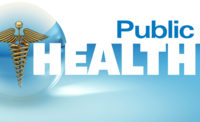The California Medical Association (CMA) and the California Dental Association (CDA) are fighting back against a bill passed recently in the state that blocks local sugary drink taxes with a ballot measure of their own – one that would implement a statewide ban on sugar-sweetened drinks.
The ballot initiative filed by the two organizations comes in response to Assembly Bill 1838, which prevents more communities in California from joining the four who have already enacted their own taxes on sugary drinks.
Some states, like Philadelphia, Seattle and Boulder, Colorado also have taxes on sugary drinks.
"A dangerous ballot threat"
In a statement, the CMA called Assembly Bill 1838 “a dangerous ballot threat that jeopardized the fiscal outlook of local governments, forcing the state to pre-empt local authority and pass an unprecedented 12-year moratorium on any local soda tax.”
The American Heart Association called the bill “a last-minute, backroom deal negotiated and written in secret by beverage industry lobbyists and their allies” and warned that it is a significant step backwards in the ongoing effort to reduce overconsumption of sugary drinks.
The CMA and CDA says their measure would provide at least $1.7 billion in revenue for critical health programs and constitutionally preserving the ability of California’s local communities to make their own decisions regarding future soda taxes.
The CMA, represents 43,000 California physicians, and the CDA represents 27,000 California dentists.
"A cynical short-term victory"
Dustin Corcoran, CMA chief executive officer, and Carrie Gordon, CDA chief strategy officer, issued the following statement:
“In the face of growing public support for local health taxes on sugar-sweetened beverages, the billion-dollar global soda industry last week put corporate profits ahead of public health and forced an ultimatum upon the leadership of California’s state government.
“Big Soda may have won a cynical short-term victory but, for the sake of our children’s health, we cannot and will not allow them to undermine California’s long-term commitment to health care and disease prevention.
“There is overwhelming evidence of the link between obesity, diabetes, tooth decay, and heart disease and the consumption of sugary-sweetened beverages such as soft drinks, energy drinks, sweet teas and sports drinks.
“Around the world and in local communities, reasonable soda taxes have been proven effective in dramatically reducing consumption of sugary drinks and improving the public health, especially among children.”
"Discriminatory taxes"
On its website, the American Beverage Association (ABA) says “taxes won’t make people healthier, just poorer. It’s why we are working with national and local public health organizations on comprehensive efforts to reduce sugar consumption in communities where it’s most needed.”
The ABA says it is engaged in spreading awareness about regulations “that would limit consumer choice,” and strives to provide Americans with more information about the choices they make every day, allowing them to lead balanced lifestyles.
“We may disagree with some in the public health community on discriminatory taxes, but we agree that we must work on comprehensive solutions to public health challenges.”


